Got Backbone?

Today history was made, of sorts. At least for my family.
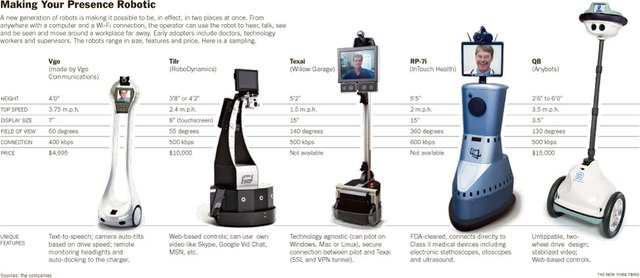
We held a funeral where telepresence was used for attendees who were unable to be in attendance in person.
While it wasn't quite as weird as the picture above, it was a good solution and worked out reasonably well.
This post isn't really about the funeral or about telepresence, but about something that struck me when contemplating what it all means.
What I've come to realize is that, at least in the near term, our future as a species isn't out amongst the stars, at least not as we are now.
However our species is about to make a very important leap. One which will change the way we think and function forever. But this leap is being actively blocked by corporatist interests that don't realize they are blocking our progression in order to turn a buck.
To understand it though, we need to look back and examine the path we're on and where it leads.
For most of history, humanity's reach has been extremely limited.
For the first million years during which we were anything we could call "sapient", we were locked in.

We were animals with barely more than a grunt to spare for one another.
This limited our range for a long time.
Small tribes and families could pop up and migrate as a unit, I'd be willing to bet that this form of interfamilial, intertribal communication evolved first.
Speech itself appears to be derived from the need to coordinate these sorts of moves in addition to making hunting a bit easier.
We became nomadic, but interactions outside of our immediate tribes were still extremely limited.
Eventually we learned to settle down and make the land work for us.
Settlements would occasionally encounter each other and trade or war was the natural result.
As time wore on, we built wheels and wagons and carts and ships to ferry us and our excess goods and knowledge great distances with ease.
With the opening of trade, things began to accelerate.
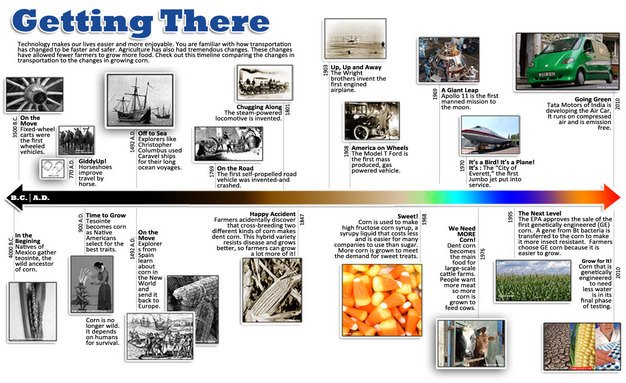
One day we were on camel back, then we figured out steam and soon we figured out internal combustion.
Yet at the same time this was happening, another revolution was going on. We went from grunting and pointing, to proto-speech, to speech, to the written word. Eventually we figured out woodblock presses and suddenly books weren't quite the rare curiosities they once were.
Of course this really took off when Gutenburg gave us the movable type press.
With the advent of the printing press, soon our minds began to expand and mix and this free exchange of ideas, literally lit the world on fire.
While the lead out from invention of the printing press to the invention of the telegraph took a few hundred years, the time since the telegraph has been almost the blink of an eye.
In the last 150 years, we've seen the invention and almost instant dissemination of the telegraph, typewriter, radio, telephone, television and internet.
All of this has been leading us inexorably towards a sort of mental convergence.

With the advent of the internet, we're no longer bound to our physicality. We can reach out and touch the hearts and minds of people on the other side of the world with little more than a few keystrokes. We can do everything from playing computer games, to engaging in heated debate and of course shopping.
We're now leaving behind a world where distance matters.
The only thing limiting us is the speed of light and I'm not convinced even that is the barrier we think it is.
So where does this leave us?
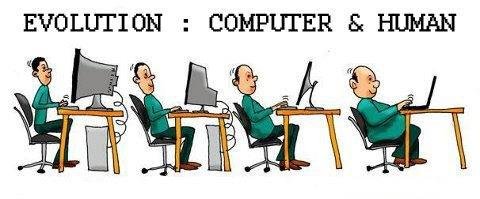
I've been fond of saying that as time goes on, our devices have become ever smaller and more intimate with us.
Most of us have lost a smart phone or a laptop and felt like a part of us has been lost, such as an arm or a leg.
What is driving this "shrinking" is a rule we call "Moore's Law".
Moore's law states that the number of transistors we fit on a given piece of silicon doubles every 2 years. This has held true since the 1970s. But the reality is that Moore's Law appears to be a reflection on a deeper law.
This deeper law is
"The amount of information processing capacity that humans have at their disposal, doubles every two years".
If you look at anything such as, number of books published, number of new services launched, even number of messages exchanged. This law is holding true in almost all cases, except one.
Furthermore, if you extrapolate backwards, it's pretty clear that regular, periodic, exponential increases to information processing capacity, has been going on since AT LEAST the advent of the industrial revolution and probably much, much longer.
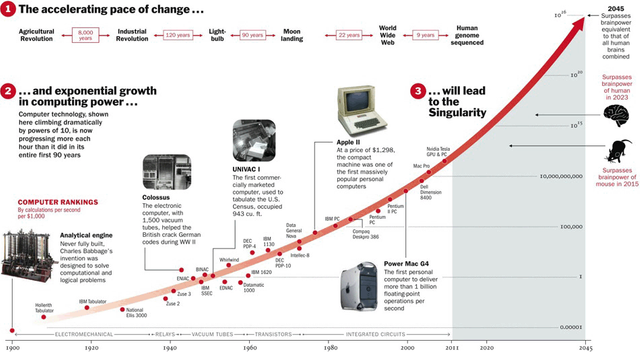
ignore the bit about the singularity in the graph above, there are real reasons that won't happen. Just keep in mind the exponential increases.
You have in your hands a device with more information processing capacity than was in the entire world in the 1960s and it still has more computing capacity than the top 10 super computers of the 1980s combined. Yet it's small enough you can lose it if you're not careful.
It's not just processing capacity undergoing this, but also storage capacity. Right now you can buy up to 1TB SD Cards, and the best deal going is a 64GB SD card which will run you around $0.80 per GB.
Just to give you a comparison. The last time project Gutenburg released a "downloadable" collection it weighed in at 4.6GB. That 4.6GB contained nearly 100% of everything that was published by humans prior to 1920. So for about $5 USD you can store the entire information output of humanity up to about 1920.
The laptop or desktop you're probably reading this on, most likely has a 1TB or larger drive if it's from the last 2 years.
That's the capacity to everything humans put out from the beginning of time until the advent of the internet.
Let that sink in for a moment. 5000 BC to 1920 AD ~5GB and 1921-1996 ~1TB
In the 1980s storage capacities were measured in Megabytes. In the 1990s that went to Gigabytes. In the 2000s that went to Terabytes.
Now when we talk about "big data", a terabyte is barely a drop in the bucket. For big data applications, you're talking about PetaBytes and even ExaBytes.
The limit to this with our current understanding, is probably going to be around 1 atom per bit.
Densities that high put something the size of an SD card into the yottabyte range.
In truth, without a full understanding of Quantum Mechanics, we can't even honestly say that would be the limit.

As it turns out, the most "information dense" objects in the universe are blackholes, which contain so much information that they cease for all intents and purposes to exist within our universe, being so dense as to be closed loops of spacetime.
At some point, we may well find that the way to overcome the information density limit is in fact to create and/or manipulate black holes.
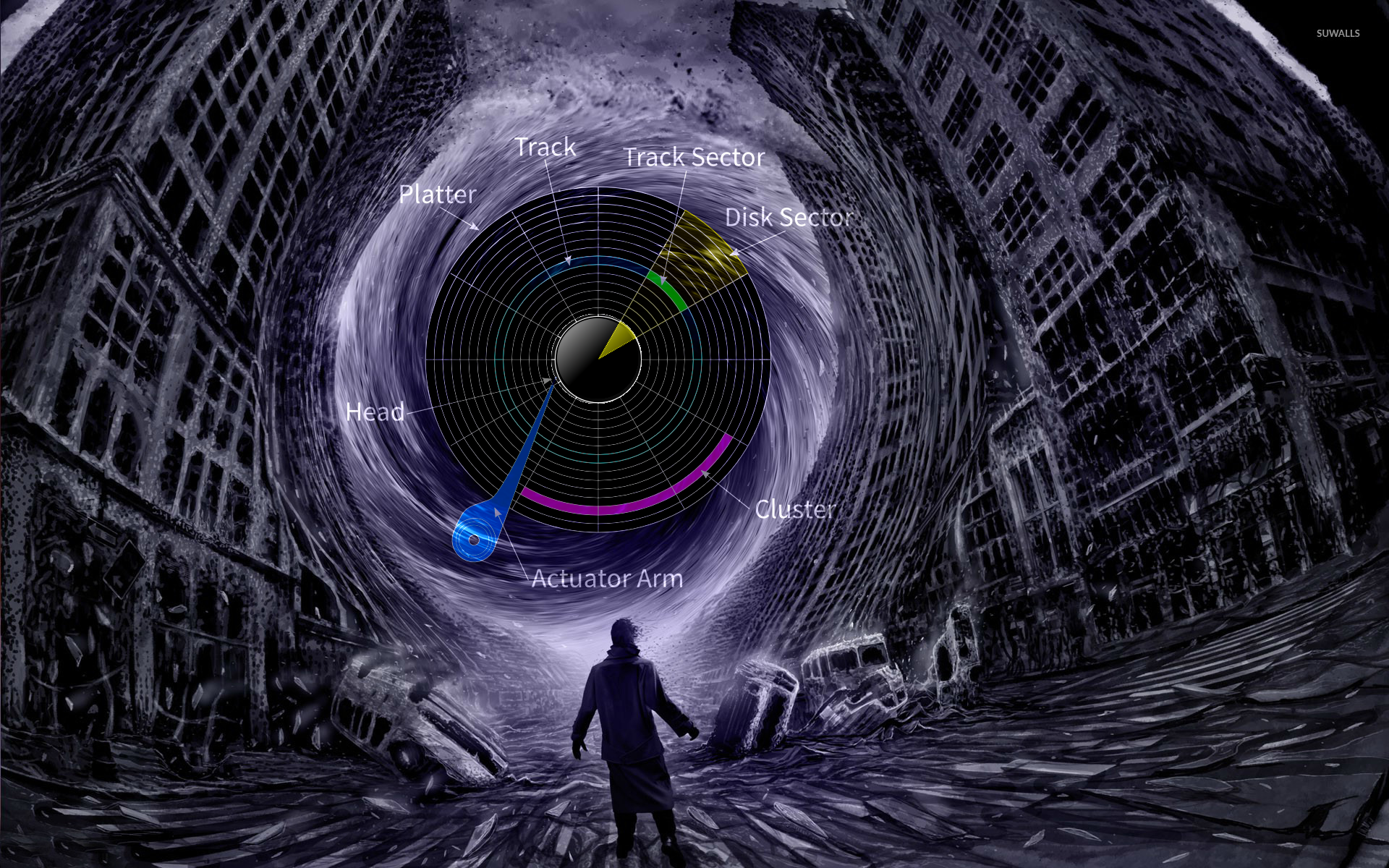
Damn, why does this happen every time I try to defrag this thing?
But we aren't there yet and this has strayed a bit further than I wanted. The fact is, every time we see a limit, we as a species eventually overcome it.
At the moment though, the limits to our information processing capacity, are not found in our ability to process information, nor our ability to store it, but in our ability to access information and send it further on.
This is what we call bandwidth, and it's being artificially limited by the existing backbone providers and our own ISPs.
It doesn't need to be this way. Other than the cost of equipment, it truly costs nothing to send or recieve nearly limitless information across the internet. Any limits in place are there solely because of profit motives and this is where I've realized that humanity needs to do something if we're to take the next great leap.
ISPs and backbone service providers currently have absolutely no incentive to improve their networks. They make a killing because they have a complete monopoly in most cases over the people they serve. These are people who in most cases have no alternatives. Because of this, they are able to implement bandwidth limits and caps as well as forcing an artifical model of consumption based pricing.
Here in Mexico the situation is better than the USA, and I hear it's better in Europe too. The USA has fallen behind in terms of broadband deployment and runs a real risk of becoming a third world country when it comes to internet. Yet even in countries where it's all good, I believe we can do better.
What's really needed here is to address the backbone problem.
A new backbone needs to built, with new protocols that can support multi-homed routing and then we need to deploy a plethora of on and off ramps into the new network.
IPv6 is a great leap in this direction and although it's adoption has been very slow, it is finally beginning to take hold.
It may be that with IPv6 and some judicious use of protocols such as QUIC, that we collectively can build a new mesh network that leverages idle / unused bandwidth to enable fast routing between endpoints. I have an idea for a full protocol stack that could do this, based in many ways on the Content Addressable Network design I laid out in an earlier post.
I'll spare you the technical details, but imagine what would happen if we replaced the current, profit motivated backbone providers and ISPs which are rapidly consolidating into a large collection of single points of failure; with a swarm of small cheap wireless connected routers.
These routers would be extremely efficient and could be powered by mains electricity and embedded in ordinary, everyday things such as lightbulbs. Or they could be powered by cheap solar cells and inexpensive batteries. Unlike most mesh network designs, I'm not talking about a few thousand devices all trying to communicate on the fringes as individuals. But a true swarm that can act collectively as a single large antenna in any given area.
Furthermore, what happens if we take this a step further and have the company that builds and sells these things, not be a company in the classic sense but a distributed company acting as a non-profit. Profits from the manufacture and sale of the swarm devices would be used to fund the build out and operation of "focal points", similar in many ways to the central office of a phone company. The chief difference being that the sole purpose of a focal point is to serve as a nexus point allowing these swarms to link together, thereby providing even higher bandwidth.
So this is what I propose.
Currently, the VIVA project is in it's infancy, yet it's showing great promise as both a digital currency, and as a technological leader.
Once that project is running under it's own power, what if we provisioned a company who's sole purpose is to rebuild the backbone of the internet, replacing it with this "Inverted Internet of Things" concept, where every lightbulb, every appliance, hell even every roof tile has within it, an embedded high speed router designed to bring an ultra highspeed wireless network to the entire globe.
I know this is a moonshot, but if we can re-invent the economy by introducing trustless digital currencies, I don't see any reason why we can't take the excess economic output and use that to re-invent the internet, alleviating ourselves of the last vestiges of a network designed by the US Military to ensure US military supremacy in the event of a nuclear attack and replace it with something designed instead to ensure that every being has bandwidth that scales with moore's law.
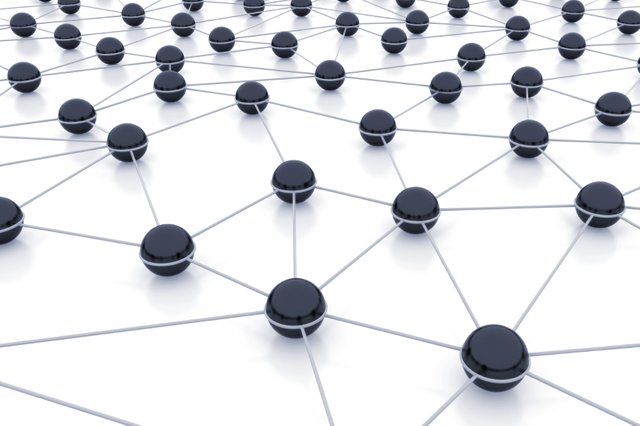
Let's make this happen. As soon as it's expedient, let's work collectively to design and build the chips, get them into production and introduce them into common, ordinary, every day devices and build out a global mesh network to completely replace the existing backbones.
For more information about the VIVA Project, please feel free to check out our whitepaper, and stop by our chat channel where most of your questions can be answered.
Good post.
I do, however, question this leap is being actively blocked by corporatist interests
I do not see that happening, rather the opposite in fact. Corps built the internet.
They're constantly expanding it as you described.
Corps didn't build the internet though. The internet was built by the US Military. Corps have expanded it, but at the same time they have also severely restricted and limited it. Example the recent charges in New York against Verizon as well as the hostile stance against net neutrality. The fact that an effectively unlimited resource is being metered and yet they still try to sell it as "unlimited".
If those same interests would reduce their profit margins and instead invest it into upgrading their infrastructure to provide first class service, I might be inclined to agree with you. But that's not what's happened and as these giants coalesce and consolidate, it provides ever fewer options. It's the ISPs and it's the backbone providers.
Look for instance at SCTP, the protocol has been around for 15 years now, and yet there are still major providers that don't speak it. IPv6 is only now starting to get some traction, but the largest ISPs do not support it.
Every dollar they don't have to spend on upgrades, is a dollar that goes to profit instead. As these networks begin to decay and age out it causes fragility. Perhaps more importantly, if ISPs were as easy to replace as end devices, we would likely see Moore's Law style increases in bandwidth to the end user. But that's not what we see. Instead we see caps, limits and throttling all in the name of "congestion control".
ARPA net,
The internet as we know it more or less evolved from there. It still evolving as you noted. It was financed and built by thousands of independent businesses. Feel free to get involved.
And to continue that...
yup.. that's why I posted the link...and private industry took it and RUN. I'm loving it.
Ok, but taking it back to my point.
The current design has significant choke points. The incentive to losen those checkpoints isn't there and at best in terms of bandwidth, we're seeing incremental increases vs the exponential increases we see in every other field of computing.
We know that the technology exists to lift these limits and we know that there are some providers who still have routers, switches and gateways running that were built in the pre 9/11 days.
So my proposal. Treat this as damage and route around it, by taking the same concepts we've learned from our experience building digital economies and use it to solve the problem.
Example, imagine if instead of everyone in a crowded room contending for the same wifi bandwidth, that each cellphone, tablet, laptop etc, were able to negotiate to share portions of their bandwidth.
Furthermore instead of a highly insecure "internet of things" turning into a monster botnet swarm, what if that were flipped on it's head and each device became a router, smart enough to help each packet a little further on to it's final destination?
GOOD IDEA. Do it.
I read about a guy in Italy (just looked, can't find it) who proposed building a highly redundant, massively parallel, widely distributed network..for CHEAP. it had to do with 'shared resources' and 'distributed wi-fi'...and 'white space'.
The gist of the idea was that someone could buy a device...and it would connect to other similar devices (within oh...about a mile radius) by wi-fi. As more and more people bought and set up their devices the network would spread, organically. First local, then nationwide, and eventually the whole world would be covered by the net. Data Packets would thus be 'routed' among the WIDELY distributed network, none of which was to be dominated by any one company or group. If a hole in the net appeared, it was routed around.
Sounds like a good idea to me.
What I want to know, is who is working on network protocols that work with a web architecture vs the old backbone architecture.
IP no longer cuts it. DNS too.
Do we go back to telephony packet routing structure?
Well Google looks to be on the right track with QUIC which allows you to multiplex TCP and UDP streams. UDT has promise as well. But as long as backbone providers continue to be selective about what packets they will carry, we're going to keep being hemmed in.
Internet2 looks like it has some promise, but it looks to be predominantly composed of point to point fiber installs.
I won't use anything created by a corporation that says to do evil.
Who are some of the best minds in mesh networks?
The same people developing p2p protocols. There's a lot of good stuff on wikipedia about the current stage of the art in mesh networks.
https://en.wikipedia.org/wiki/Mesh_networking
This was a very interesting and inspiring read. I have been thinking alot about meshnets myself,but I lack the technical understanding. I just know that we need something new, to get a truly free internet. I understand that there is a problem in regards to standards, as there are several meshnets projects that don't communicate,and this means that the utility is only local. How would your project convince others to use certain protocols? I have been toying with the idea of a meshnet crypto, with proof of mesh. It would create an incentive to build the network.
A fantastic article William. I do have serious reservations concerning the spread of technology to the degree you mentioned, more accurately about technocracy and those who have an agenda of control that want to use technology to manage every little aspect of human life for all but an elite few at the top.
Technology is only a tool, which can be used for both evil and good. Until humankind can get a handle on self governance first we will have a major limit on how prosperous individuals can be.
Hopefully by then the issue of psych/sociopaths will fade away as we stop using violence to solve problems, starting with how children are raised. I believe Stephan Molyneux is right on the money regarding how great a role violence currently plays in forming our psyche in our formative years. As we age we add layer upon layer onto our subconscious and insulate ourselves from the pain of those earliest years. So few people are willing to address that as a causal factor in the evolution of the human race.
I'm looking forward to advances and uses of both Augmented and Virtual Reality. I think that the opportunities and possibilities promised by telepresence is MUCH underestimated. With proper telepresence gear...why leave home?
Suddenly...the transportation network. The highways, and airlines..become obsolete for human conveyance. I would expect that they will soon be used for nothing much more than freight.
I agree with that wholeheartedly. But for that to become a reality, i.e. our next big leap. We need to not have 3GB data caps on our cellphones and throttling to dialup speeds even when there is no congestion on the network.
so MAKE one and sell it. You'll be RICH.. Note the mention of 'white space'. NOT federally regulated..'
Fantastic article, I loved the journey through to where we are now and the interpretation of Moore's law. On the guidance of @merej99 i am checking all this VIVA stuff out. Cheers!
Sounds like you're definitely designing the internet from my head universe. I would seriously love to see that as a reality :D I also wish I could understand more of what you wrote, I'm not really technically inclined to begin with and my current epic headache isn't helping -_-